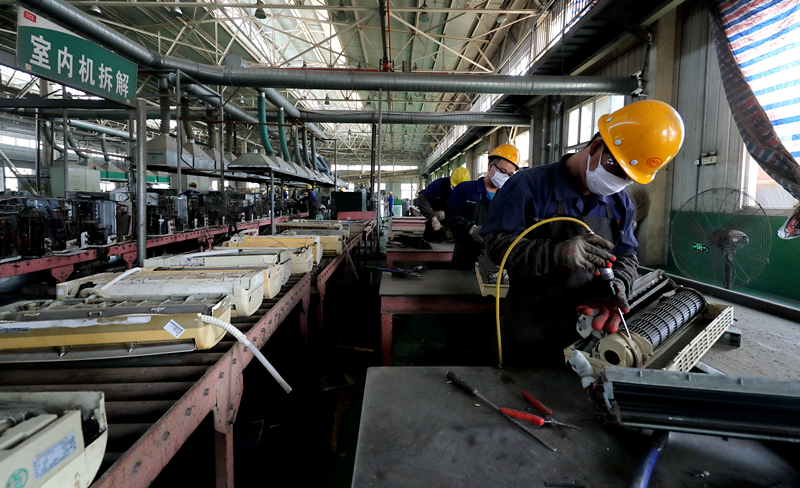E-waste recycling troubles pile up


He blamed the low margins on the gap between the source and recycler, saying that some e-waste is traded at least three times before it reaches his plant, and each time this happens, it pushes up the price.
Yu, at the China National Resources Recycling Association, suggested cutting out the middlemen by setting up public collection points where families could leave large home appliances to be sent directly to licensed recyclers.
Mao also said some of the money from the fund could be used to help establish a direct connection between recyclers and consumers.
"The government could set up a nonprofit, like the one for household garbage treatment. Or it could choose to place all the responsibility on manufacturers and get them to establish a system. Each of them could dismantle a certain amount of e-waste based on their output," he said.
Yu said manufacturers should play a bigger role by upgrading products to make them more recyclable and by investing in green businesses.
As an example of this, TV manufacturer TCL is a partner in Wang's plant in Tianjin.
Streamlining the collection system is seen as key to keeping recycling plants running, particularly with demand set to increase when the pilot program is expanded to include auto parts and paper-based packaging, among other types of waste.
Chinese discard about 120 million items of e-waste every year, according to the National Bureau of Statistics. In September, the Ministry of Ecology and Environment set up a new department for solid waste and chemicals.
Mei Fengqiao, an associate professor of environmental management at Peking University, said the move shows the government attaches great importance to the issue, but "the situation will become grimmer as the volume of household and industrial waste rises".
Improper waste management, which results in untreated piles of trash and dirty scrap yards, contributes massively to soil, air and water pollution, Mei said, so a sound collection and storage system would boost environmental protection.
- Man sentenced to death for killing ex-girlfriend in Anhui
- A US youth reflects on the 'cave-dwelling conversation'
- China unveils first AI model to gauge weather's impact on stock market
- Tianjin launches youth program to cultivate university talent for tech market
- Local farmers combat desertification in Moyu county of Xinjiang
- N China's Hohhot launches winter amusement programs to boost local economy





































